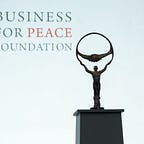Putting the ‘S’ in ESG: The Social Aspect of Investment
Written by Eva Thorshaug, Intern at Business for Peace Foundation
Only a decade after the adoption of the UN Guiding Principles on Business and Human Rights (UNGPs), the focus on Environmental, Social and Governance (ESG) issues in capital markets has shifted from the margin of considerations, to the mainstream of investment. ESG criteria has become an increasingly prevalent way for socially conscious investors to assess potential investment opportunities and a recent report from Bloomberg predicts that ESG assets may hit a record-high $53 trillion by 2025.
Companies that have ingrained ESG in their long-term strategies are likely to be more resilient in the face of unexpected external crises.
The three main metrics contained in ESG enable the measuring of a firm’s collective, social and environmental impact, gathering information about companies’ carbon footprints, labour policies, board diversity, amongst many other Social factors, specifically, cover a wide range of issues from employee rights to supply chain concerns. While governance and environmental concerns have been prioritised in the past decade, social performance considerations have remained under-explored largely due to misconceptions that they present lower risks to investments. But as the 21st century business environment evolves and social responsibility takes the centre stage, the scope of what is considered ‘S’ widens accordingly. In the post-Covid-19 reality, the ‘S’ in ESG is only likely to become more salient.
Difficulties surrounding ‘S’
Despite the increased focus on ESG in recent years, there appear to be issues in grasping precisely what the ‘S’ entails in a wider company framework. Likewise for the integration into investment decisions. A report by Principles for Responsible Investment (PRI) from 2017 concluded that it is the social element of ESG issues that is by far the most difficult for investors to assess correctly. This is mainly because it is difficult to measure and quantify the implications of social considerations. ‘S’ issues also garner less mature data to showcase the impact of a company’s performance. In other words, it is the lack of data and consistency related to ‘S’ that remains the most challenging. The issue for many corporate leaders also seems to be that it is difficult to identify exactly where attention should be focused and how best to communicate ESG efforts to the wider public.
Finally, there also appears to be a common misconception that simple, often one-time, actions are adequate solutions — such as releasing a sustainability report or holding a sustainability-focused investor event. While such actions are positive for the bottom line of a more equitable and sustainable society, their effects do not necessarily materialise in tangible benefits for the planet or society. Rather, such actions are telling of a greater ‘box-ticking’ culture that seems to have emerged. It encourages increasingly standardised ESG activities and voluntary commitments such as reporting, rather than long-term strategies.
Similar trends can be seen with regards to the UNGPs. Currently, there is a large gap between the responsibilities set out in the UNGPS and the actual practices of investors. Part of the reason for this is that most of ‘S’ assessments conducted by investors focus on indicators that measure effort — meaning what policies and procedures are in place — rather than the full effects of corporate performance. But in a world that increasingly judges companies on ESG performance, there is a need to look beyond procedural ‘tick-box’ exercises and to the fundamental drivers of change in order to achieve real results.
Moving beyond ‘box-ticking’ culture
For many businesses, the likelihood of transgressing human rights probably seems low. However, through different processes in an increasingly globalised supply chain, these risks are more pronounced than one might think. As such, mindful action on the matter is essential in the post-Covid-19 recovery period. The lenience companies and investors have been offered on matters of ‘S’ in the past is likely to disappear alongside other pre-pandemic practices. What is more, an emerging industry of ESG rating agencies is also likely to enhance their analysis of ‘S’ efforts in the time coming. More scrutiny thus increases the need for companies to improve their practices and steer focus to the tangible impact of their actions as opposed to solely ‘in principle’ commitments.
At the Business for Peace Foundation our mission is to accelerate the development of responsible business practices by increasing the awareness of the strengths of the businessworthy case, drawing attention to business leaders who are leading the way. Business can both do good and do well by being what we call businessworthy: ethically and responsibly solving problems that create value for both business and society. Procedural ‘tick-boxes’ and voluntary compliance is no longer sufficient as current challenges call for a new corporate management paradigm.The future direction of this matter is clear and there is no time like the present for businesses and investors to play a key role in forming a more resilient and equitable society for the future.
